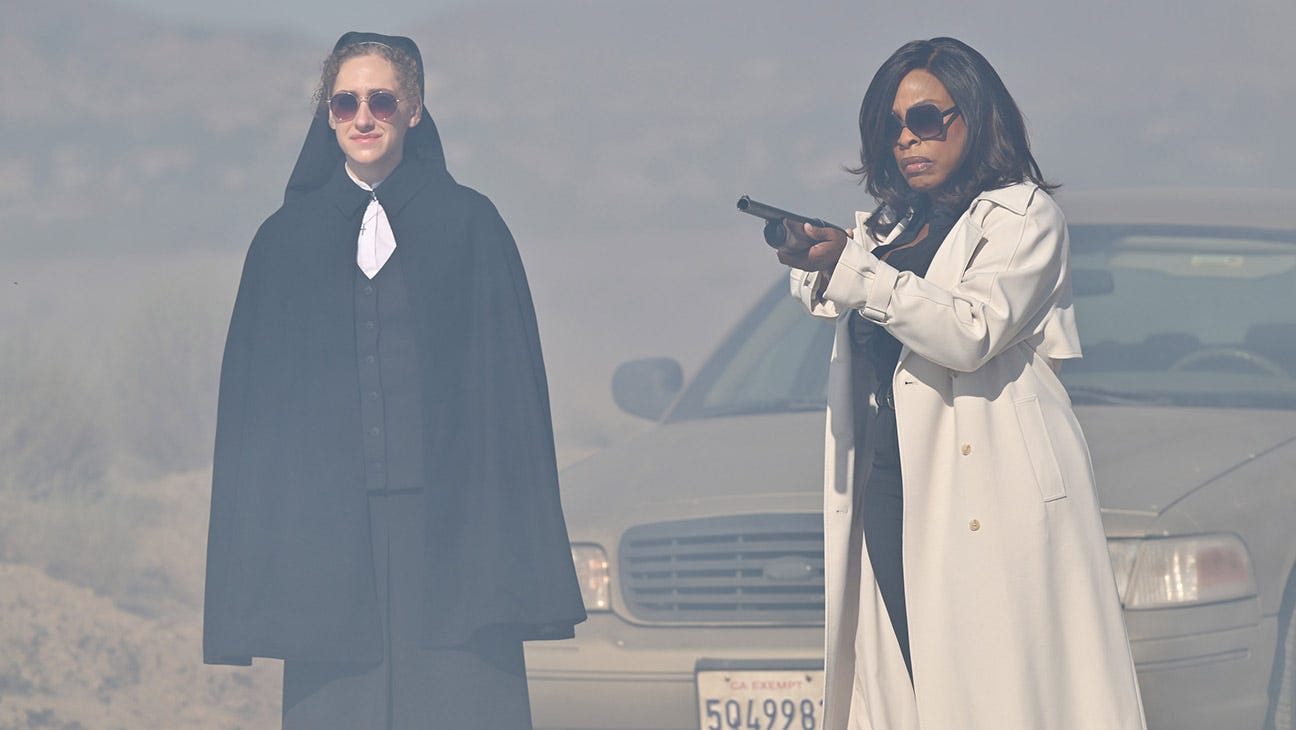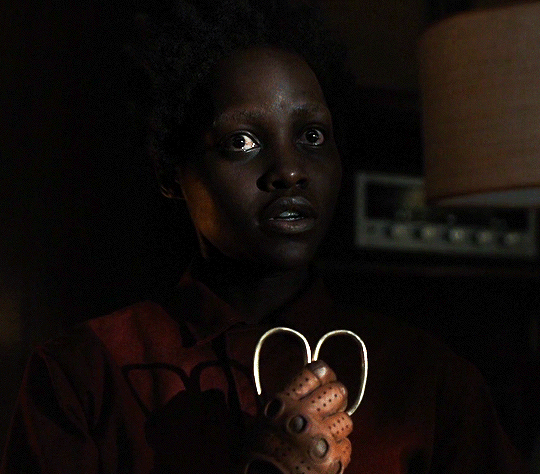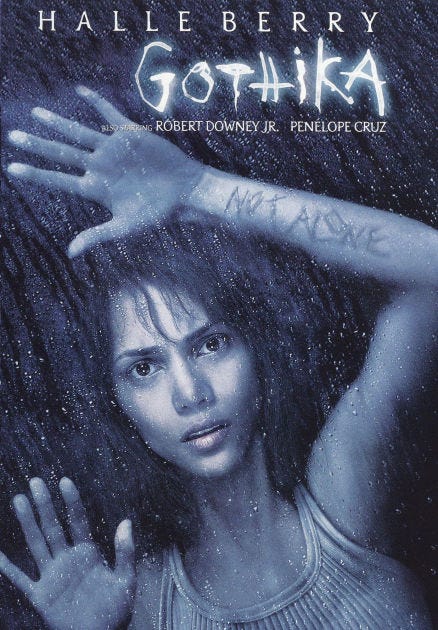Sidelined scream queens: Black women’s battle for horror representation
Who’s your favorite Black final girl? It SHOULD BE too many to count, unfortunately Hollyweird continues to count out Black women in a white male dominated genre, and I’m sick of it!
Happy Birthday to the best Grampie on the planet! Mine!! Although we just got off the phone, I wanted to tell the world it was your birthday! Ya’ll ready for Halloween? I suppose I am, I pretty much engulf myself into anll things horror annd sci-fi all year, so not much of a change for me. Recently, I’ve been rewatching The Walking Dead. Everyone has their favorite characters right? I don’t really have a favorite character, although I do enjoy Michonne, to an extent. It just gets annoying how Black women are constantly portrayed as one diminsial. Especially when written by white men. Michonne is your typical badass, she’s good with a sword, she’s chaotically good, she speaks common sense into Rick.
And when we get a glimpse of her background, also very typical, she had one child with her boyfriend, and when her son died at the rescue center, her boyfriend and friend were high. Sighhhhhhhhhhh. But white ass rick (I love Andrew Lincoln btw) on the other hand is a shot because he’s a cop and wakes up in a hospital. Rick is married, with a son; granted his wife has a um… “entanglement” with his best friend after everyone assumed he was dead. My point is, if we as Black women are being included, why can’t we be included with development and without stereotypes? We’ve come a long way from the days when Black characters were mere sidekicks or sacrificial lambs, but Black women are still largely missing from the conversation when it comes to leading roles, dynamic characters, and meaningful representation in the horror industry.
Horror films have a notorious history of marginalizing Black characters, and Black women were often either erased entirely or relegated to stereotypical roles. In the early days of horror, Black characters barely existed on screen, and when they did, it wasn’t pretty. Think back to films like King Kong (1933), where Black natives were portrayed as nameless, faceless, savage threats.
It wasn’t until the 1970s that Black horror began to emerge, but even then, Black women struggled to find significant roles. Films like Blacula (1972) and Ganja & Hess (1973) gave us rare moments of Black leads, but let’s be real these were outliers. Ganja, played by Marlene Clark, was one of the few Black women in horror who didn’t fit into a stereotypical box. She wasn’t just a victim or a throwaway character. She was complex, seductive, and deeply flawed. Unfortunately, for years, characters like her were the exception, not the rule. Fast forward to today, and things are slowly improving. But let’s not pretend we’re seeing a tidal wave of Black women headlining horror. Sure, we’ve got some gems in recent years, but it’s still a struggle to see consistent representation.
Take Us (2019), for example. Lupita Nyong’o delivered an absolutely chilling dual performance as both Adelaide and her sinister doppelgänger, Red. This wasn’t just a victory for Black women in horror; this was a game changing moment for the genre as a whole. Lupita didn’t just survive until the end she carried the entire film with depth and power. But where are the other Black women headlining horror movies? We shouldn’t have to wait years between films like this to see a Black woman in a leading horror role.
Another recent standout is Candyman (2021), directed by Nia DaCosta. Teyonah Parris took on the role of Brianna, an art gallery director who gets caught up in the supernatural horror of the film. Her portrayal was strong, yet we still saw her character playing second fiddle to the male lead. While Candyman was a huge step forward for Black filmmakers, we can’t ignore the fact that Black women are still often sidelined, even in films centered around Black narratives.
Then we have Lovecraft Country (2020), a TV series that gave us Jurnee Smollett as Leti Lewis, one of the most fearless, dynamic Black female characters horror has seen in a long time. She wasn’t just a “final girl”; she was a fighter from start to finish. And while Lovecraft Country was critically acclaimed, it was also canceled after just one season, leaving many fans (including me) asking, "Why can't we have more of this?"
The absence of Black women in horror isn’t just an oversight it has real consequences. When Black women do appear in horror, they’re often cast into tired, harmful stereotypes. Take Brandy Norwood in I Still Know What You Did Last Summer (1998), where she played Karla Wilson, the best friend of the main character. While she’s one of the rare Black women to survive a slasher film, her role still didn’t escape the trope of being the sidekick to the white protagonist. Despite surviving until the end, Karla wasn’t given the complexity or centrality her character could have carried.
In Lena Waithe’s Them (2021), a Black women is finally at the center of a horror narrative. Them tells the story of a Black family, led by Deborah Ayorinde’s character Lucky Emory, who moves into a white neighborhood in 1950s Los Angeles and faces not only the horrors of supernatural forces but also the vicious racism of their white neighbors. While controversial for its graphic depictions of Black trauma, Them still represents a crucial step forward in giving Black women agency and prominence in horror.
Lucky’s character is not just a mother or a wife, she’s a woman grappling with deep personal trauma, societal rejection, and the weight of generational racism, all while trying to protect her family. The series places her pain and her rage at the center of the story, which mirrors how many Black women experience life in real America: battling on multiple fronts while being expected to remain resilient.
But Them also opens up a critical discussion: why is Black women’s trauma still so often exploited in horror? While the series gave more screen time to Black women, it leaned heavily into violent depictions of racial suffering, much like other films and shows before it. This raises an important question about how Black women’s pain is used as entertainment in a genre that should be just as focused on their survival, triumph, and empowerment. Black women’s stories in horror should encompass more than just pain, they should explore their full humanity, resilience, and complexity, beyond the trauma.
What’s frustrating is that these portrayals don’t reflect how Black women are viewed in real life. In everyday life, Black women are seen as pillars of strength often called “everyday heroes”, y’all saw that TikTok of the guy recounting the advice from his momma? “If you’re ever in trouble, find a Black woman”? Whether we’re leading movements for social justice, fighting for our families, or simply surviving in a society that constantly tries to overlook our contributions. In the real world, Black women are often the backbone of our communities. We’re leading civil rights movements, fighting for change in politics, education, and health care, and standing at the forefront of activism. But when it comes to the world of horror, a genre so often steeped in political undertones, Black women are almost entirely left out of these conversations.
Horror, by its very nature, is political. It’s a genre that digs into societal fears racism, class struggles, gender roles, and power dynamics. And yet, Black women, whose real lives are steeped in these battles, are often sidelined in horror films, reduced to the “best friend,” the expendable sidekick, or the wise, sacrificial character there only to guide the white protagonist to safety.
Take the films of Jordan Peele, for example, which focus heavily on the Black experience in America. His films tackle racism head on, yet even here, the central focus remains on Black men. Get Out (2017) and Us (2019) were critically acclaimed for how they handled race and class, but the opportunity to center Black women’s specific experiences in the genre still remains limited.
It’s ironic, given how well Black women’s real world resilience, trauma, and survival fit into horror’s themes. The genre has long thrived on stories of survival and resistance, yet Black women, who embody these qualities in everyday life, are often absent from its narratives. The horror genre is missing an opportunity to reflect the strength, complexity, and nuanced experiences of Black women as more than sidekicks or victims.
Black women can and should be horror’s heroes, survivors, villains, and everything in between. Just like in real life, we deserve to be at the center of these stories complex, dynamic, and fully human. Our exclusion from a genre as politically charged as horror speaks to larger issues within Hollywood and the entertainment industry at large. Horror needs to evolve, to embrace the everyday heroes it has long overlooked, and give Black women their due on screen as they fight the battles they’ve already been winning off screen for generations.
Thankfully, there are Black women pushing to change the narrative. Nia DaCosta is a prime example. As the first Black woman to direct a film that hit number one at the box office (with Candyman), she’s already making history. But we need more DaCostas, and we need them now. The success of Candyman shows that audiences are hungry for more diversity in horror, and we need to keep pushing for Black women to be at the forefront not just as actresses, but as directors, writers, and producers.
And let’s not forget independent filmmakers like Zandashé Brown, whose work in Southern Gothic horror is starting to gain attention. Indie horror is often where Black women find their voices in the genre, so it’s essential that we support these creators to help them break through into the mainstream.
Sophie Wilde in “Talk to Me” (2022)
So how do we ensure that Black women aren’t just an afterthought in horror? First, the industry needs to prioritize diverse stories and casting. This means not just throwing in a Black woman as a token character but developing fully realized Black female leads and supporting roles.
We also need to invest in Black female filmmakers, writers and creatives (like moi), giving them the resources and platforms to tell their stories. Mentorship programs, grants, and initiatives aimed at amplifying Black women in horror are crucial. And as viewers, we need to support these films when they’re made. That means showing up at the box office, streaming, and talking about these projects to create demand.
The next time you’re looking for a horror movie, take a chance on a film that centers a Black woman, and don’t stop there—support the filmmakers, emerging authors (coughlikemecough) talk about the performances, and demand more from the industry. Horror deserves its Black heroines, villains, and survivors. Let’s make sure we get our moment. Happy Halloween suge, I’ll see you next time!









